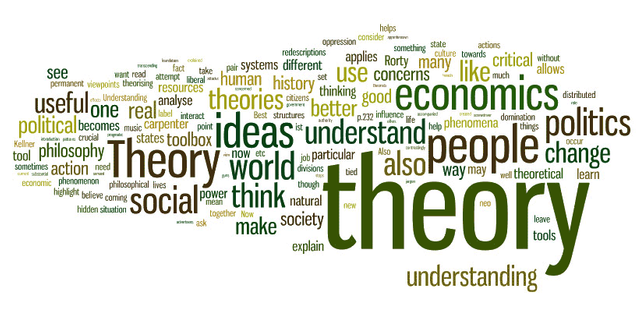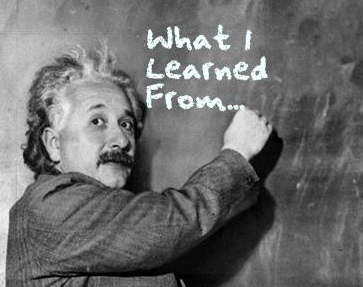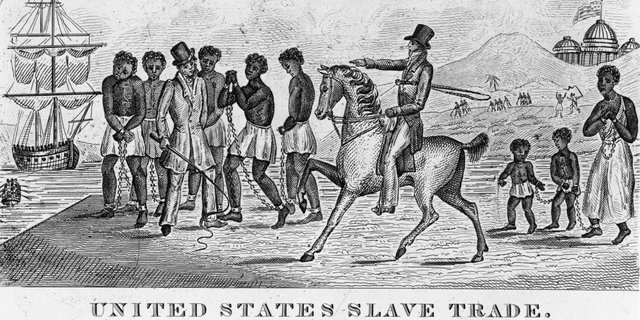For Everyone: Let's Talk About Slavery
Rather than having an argument about who "hates" slavery the most, let's take a moment and talk about slavery.
Couple things I want to get out of the way so we can get to the conversation;
- I'll be talking about American slavery in the 1700s and 1800s in an abstract way, I won't get into the slavery that still exists in the world. If you want to talk about the current slavery leave a comment and we can discuss it.
- I'm going to make an assumption as I write that the majority of those reading this believe slavery to be a "bad" thing.
Ok let's get to it

Source
What is slavery, the actual definition? According to Britannica the definition is:
condition in which one human being was owned by another. A slave was considered by law as property, or chattel, and was deprived of most of the rights ordinarily held by free persons. (Britannica)
How did the African slave trade come about?
The transatlantic slave trade was started in the 15th century by the Portuguese. African chiefs raided and kidnapped Africans from villages on the west coast of Africa and sold them to the Portuguese. (Discoveringbristol)
How did African slaves end up in the U.S.?
The vast majority of African slaves were brought from Europe not Africa. Europe had a large slave market and when they sought to take over the New World / America they brought millions of slaves with them. This area of America where the slave trade and ownership existed was called the British North America. (gilderlehrman)
After the U.S. Defeated the British Why Did We Keep Slaves?
Now this is a more complex question. What I'll do first I supply some facts and then I'm going to expand into some psychology. During the Revolutionary War Alexander Hamilton and John Laurens push for blacks to be able to join the Patriots and be given freedom for their service. Unfortunately, there was a powerful group that controlled the Charleston Port, that was strongly against this notion. The made the majority of their income from the slave trade. You can almost liken this group to a current day DC Lobby. You might also wonder why no one noticed the irony of fighting for freedom yet owning slaves? Well many did recognize this and denounced the owning of slaves, some of whom were the signers of the Declaration of Independence. (http://www.revolutionary-war.net/slavery-and-the-revolutionary-war.html)
Now for the expansion into theory and educated assumption

Source
Imagine you're back in the late 1700's, you've just defeated the British and it's your job to form a nation. You want to base your nation on freedom and rights of the individual. You want government to leave the people alone, except in 3 areas (international trade, national security, national currency).
You hate the idea of slavery and want all Americans to be free. Then, along comes a wealthy and powerful group of Americans that do not want slaves freed. They argue this is their livelihood and for the government to force this upon them would be no better than the laws forced upon them by the British. Can you imagine the arguments they would put forth? One popular argument the democratic party made for decades was that "everyone would starve if slaves were outlaw". Of course this was not true, for once slaves were freed, many worked the same job for money and we soon invented combines and tractors.
Just imagine the resistance there was and these arguments and don't forget there was thousands of other vital issues that needed to be addressed. We were after-all forming a brand new country. That is what happened with slavery, there was resistance and it was soon put off to the side and forgotten as more and more issues arose.
What Should I Learn From This?

Source
The first thing I would hope we can learn, is the importance to put ourselves in someone's shoes before we judge them.
But how can we do this, the world is so different now, at least in America?
To this I would argue that the America may not have the same issues, but the same process of hypocrisy is occurring in other areas.
For example:
- Why is the Federal Government allowed to give out student loans that cannot even be removed by bankruptcy? (more importantly when did the Government become a banks?)
- Why is our currency controlled by a third party when the constitution clearly states this is the responsibility of the government to ensure a safe and stable currency?
- Why are prisons ran by a third party, when the Judicial branch of government both at the federal and state level clearly should encompass this portion of our justice system.
- Why is over 99% of the government made up of un-elected officials?
- Why is our military encamped in over 20 countries and fighting in over 5 countries, yet congress has not voted for a declaration of war?
Ask anyone of these questions and you will be given endless arguments and you will face strong resistance. So what will you do? Will you ignore these injustices of our time, like those American before you ignored slavery?
Stefan your recent argument on the Plato Forms actually inspired this article, don't ask me how because I don't understand how, but wanted to give credit where credit was due. @stefan.molyneux
Remember to Follow & Upvote if you enjoyed the material.. Oh and Comment

Source

Had the slavery not been eradicated, it seriously affects the fate of some of mankind.
Are you asking if slavery still exists even today in the world?
Congratulations @mattthought! You have received a personal award!
Click on the badge to view your own Board of Honor on SteemitBoard.
For more information about this award, click here